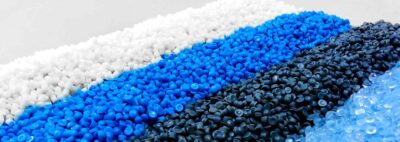The Financial Advantages of Rigid PVC Compounds

Rigid PVC compounds
In the realm of plastics, rigid PVC compounds stand out for their remarkable blend of durability, versatility, and cost-effectiveness. Known scientifically as unplasticized polyvinyl chloride, these materials have carved a niche in various industries, from construction to consumer goods. This article delves into the financial benefits that rigid PVC compounds offer, shedding light on why they are a preferred choice for manufacturers and end-users alike.
Cost-Effectiveness and Versatility
At the heart of rigid PVC’s financial appeal is its low ingredient cost. The primary raw material, polyvinyl chloride, is a thermoplastic polymer that’s not only strong and durable but also relatively inexpensive to produce. When combined with additives like plasticizers, fillers, stabilizers, and lubricants, the resulting compound exhibits enhanced flexibility, strength, and stability.
Manufacturers appreciate rigid PVC for its wide processing versatility. It can be easily shaped through extrusion or injection molding into a myriad of products, from pipes to window frames. This adaptability allows for mass production, which further drives down costs and increases the material’s accessibility.
Durability and Longevity
Rigid PVC compounds boast higher mechanical strength and resistance to weathering and aging compared to their softer counterparts. This translates to products that last longer and require less maintenance over time, offering significant savings on repair and replacement costs. For consumers and businesses, the longevity of rigid PVC products means a lower total cost of ownership—a key financial benefit.
Fire Resistance and Safety
Safety is another area where rigid PVC compounds shine. Their fire resistance is a notable feature, as they are self-extinguishing and do not support combustion. This characteristic not only enhances the safety profile of buildings and products but also potentially lowers insurance premiums, contributing to the overall financial benefits.
Economic Impact of Lubricant Systems
The economic impact of rigid PVC extends to its lubricant systems. Lubricants play a crucial role in tuning the PVC compound to the processing equipment, affecting the amount of work imparted during processing. A well-balanced lubricant system can lead to higher production rates and fewer rejects, which in turn reduces conversion costs significantly. The optimization of lubricant levels, despite being a minor part of the formulation costs, can result in substantial financial gains.
Market Presence and Environmental Considerations
Rigid PVC compounds align themselves to a broad spectrum of applications due to their low cost, resistance to corrosion, and ease of bonding with adhesives. These attributes make PVC one of the most frequently used plastics, especially in outdoor and indoor settings. Moreover, the environmental aspect of PVC compounds cannot be overlooked. As the world moves towards sustainable practices, the recyclability and energy-efficient production of rigid PVC compounds add to their financial benefits by catering to the green economy.
Conclusion
The financial benefits of rigid PVC compounds are manifold. From the cost savings in production to the long-term durability and safety advantages, these materials offer a compelling economic case. As industries continue to seek efficient and cost-effective solutions, rigid PVC compounds are poised to remain a material of choice, driving financial benefits for manufacturers and consumers alike.
click here to order our products
